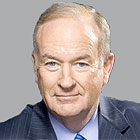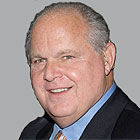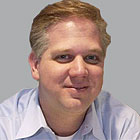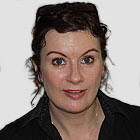The Right Word: battling far-left political correctness
The topics varied this week – God, Dick Cheney and courage – but the theme is the same: save America from the pinko PC mob
Bill O'Reilly
 Bill O'Reilly is troubled that once again that the Christian faith is under attack by the secular media (view clip here). He was particularly upset with a New York Times article written by executive editor Bill Keller
urging Americans to pay careful attention to the religious beliefs of
the candidates running for president. Keller's article highlighted some
of the unusual ideas held by the current frontrunners for the GOP
nomination, Michele Bachmann and Rick Perry.
Bill O'Reilly is troubled that once again that the Christian faith is under attack by the secular media (view clip here). He was particularly upset with a New York Times article written by executive editor Bill Keller
urging Americans to pay careful attention to the religious beliefs of
the candidates running for president. Keller's article highlighted some
of the unusual ideas held by the current frontrunners for the GOP
nomination, Michele Bachmann and Rick Perry.Perry, who stirred up controversy recently by leading a prayer convention for evangelical Christians in Texas, believes that evolution "is just a theory that's out there". Bachmann shares Perry's feelings about evolution and thinks that intelligent design should be taught in schools, that homosexuality is "personal enslavement", that the recent hurricane that tore up the East Coast was a wake-up call from God and that the bible obliges her to be submissive to her husband. O'Reilly was more incensed by Keller's remarks that "every faith holds beliefs that will seem bizarre to outsiders", that many Americans believe in aliens and that he himself grew up "believing that a priest could turn a bread wafer into the actual flesh of Christ".
Now, you can imagine if Mr Keller had denigrated the Jewish faith or the Muslim faith in stark terms like that, all hell – pardon the pun – would have broken loose. But in America today, you can kick Christianity around all day long.He discussed the matter with regular guests Mary Katherine Hamm and Juan Williams, suggesting to them that "this wafer business was a little over the top, was it not?" O'Reilly did concede that Keller had a point about politicians needing to be questioned about their theology. Williams, who is a Christian, said that he didn't like the wafer business either, nor did he understand the need to "equate aliens with the body of Christ". He did think it was very worrying that a potential president would be opposed to teaching evolution in schools, but O'Reilly was more concerned about the alien reference.
And this is really the heart of far left and Mr Keller is a far left individual. It's the heart of the far left attack mode. When you throw a basic Christian tenet that a priest a minister has the power through ordination to change bread into the body of Christ, à la the last supper when Christ Jesus gave the dictum to his apostles to do that … when you say you know that's like believing in aliens and that's like doing this, that and the other thing. You know, it doesn't offend me and I'll tell you why. There are a lot smarter people than Bill Keller who do believe that happens and it's a belief system – you just believe it or you don't.Despite these objections, however, all three agreed that there were questions to be asked about the extent to which a possible future president would plan on allowing his or her religious beliefs to influence their decision-making. If Bachmann is elected president, for instance, Americans might do well to ask if, in fact, it will be her husband – to whom she submits – who will be calling the shots. They may also want to make sure that were a Katrina-style hurricane to occur on her watch, she would take the necessary steps to safely evacuate people rather than simply sending them to the levees to pray.
Rush Limbaugh
 Rush Limbaugh was delighted to welcome his hero Dick Cheney on his programme to discuss his new memoir (listen to clip). Although the book has met with mixed reviews, the New York Times dismissed it
as "mostly a predictable mix of spin, stonewalling, score-settling and
highly selective reminiscences", Limbaugh found it to be "riveting" and
"fascinating" and written "from the heart and honest". He did
acknowledge, however, that Cheney, who left office with an approval
rating of 13%, and still enjoys about the same level of popularity, has
b
Rush Limbaugh was delighted to welcome his hero Dick Cheney on his programme to discuss his new memoir (listen to clip). Although the book has met with mixed reviews, the New York Times dismissed it
as "mostly a predictable mix of spin, stonewalling, score-settling and
highly selective reminiscences", Limbaugh found it to be "riveting" and
"fascinating" and written "from the heart and honest". He did
acknowledge, however, that Cheney, who left office with an approval
rating of 13%, and still enjoys about the same level of popularity, has
been labelled "the most divisive political figure in this country in a century". But both he and Cheney decided that this was actually "high praise".
They moved past the pleasantries quickly with Limbaugh asking the "great man" what he felt his proudest achievement was. Cheney responded without hesitation that it was working with the fine men and women of the military (except when they disagreed with him), and "something that I feel was most important that I was involved in would have been the years after 9/11, when we put together things like the terrorist surveillance programme and enhanced interrogation techniques."
He credited the use of these techniques with preventing a second attack on US soil (though many people wish he had done more to prevent the first attack by reading the 6 August 2001 intelligence briefing document titled "Bin Laden Determined to Strike in US"). He also explained that the torture technique known as waterboarding was particularly useful with people like Khalid Sheikh Mohammed, because being able to "interrogate him effectively with these techniques was vital in giving us the knowledge we needed in order to defeat al-Qaida". Sadly for Cheney, the task of eliminating al-Qaida's leader, Osama bin Laden, fell to the Obama administration, which discontinued the use of his "enhanced interrogation techniques". Limbaugh agreed with Cheney's assessment of his contribution to the country's well-being, however, and asked him if it ever bothers him that people seem to dislike him so much.
How did you deal … I mean, being the person that you are, investing your life for the goodness of this country … How did you deal the last eight years of your service being called "a demon", "a devil", "Darth Vader", "the most divisive"? People want to understand what that's like from a personal standpoint, and how you dealt with it and stayed focused on your job. How did it affect you?Cheney laughed off the question, simply replying that if you don't have a "thick enough hide", then you're probably in the wrong job. The interview ended soon afterwards, with both men praising each other profusely for all the great things they each have done for America.
Glenn Beck
 Glenn Beck recently returned from his Restore Courage Rally in
Israel, and was all fired up with the important lessons he learned about
the urgent need for Americans to have the courage to reject politically
correct thinking (listen to clip).
Glenn Beck recently returned from his Restore Courage Rally in
Israel, and was all fired up with the important lessons he learned about
the urgent need for Americans to have the courage to reject politically
correct thinking (listen to clip).If you can't find courage now, you're not going to find it when you really need it. It does take courage, that's why we just had Restoring Courage. It takes honour. Make sure you know who you are. Make sure you know what you believe. Make sure you know your place in the universe; make sure you know that you've got power. Make sure you know that you're not alone and then, as they turn up the heat, they're going to try to do everything they can to make sure you are alone.The manifestation of this latest concern is a sudden distaste for the use of the term "African American". Beck doesn't understand why black people in America are referred to as African Americans, while black people in other countries are not. He thinks it would be simpler to use either the term "coloured" or "black".
In South Africa, it's black and coloured, and I don't remember the difference, but there is a difference: one is indigenous and the other had come from someplace else. I don't remember which one's which, but like, Indian, I think, even came in; I think maybe it was coloured that was also like Indian, or – you know – elsewhere.His sidekick points out that it's the politically correct lobby in America that have made such a fuss about using the term "coloureds", but he personally doesn't see what the big deal is. Beck adds that it's time for blacks to get over wanting to be called African American (likening it to the preference for the term "handicapable" over "handicapped") because he thinks they are just using the term as a way to feel good about themselves. It didn't occur to him that the term coloured might be offensive to Americans of all races because of its invocation of the Jim Crow era ("coloured" water fountains and so forth), although he did acknowledge that there was a period in America when "this country sucked for blacks."
Now, however, he believes it's time to put all that behind us by rejecting political correctness and "dismissing the human rights frauds".

No comments:
Post a Comment